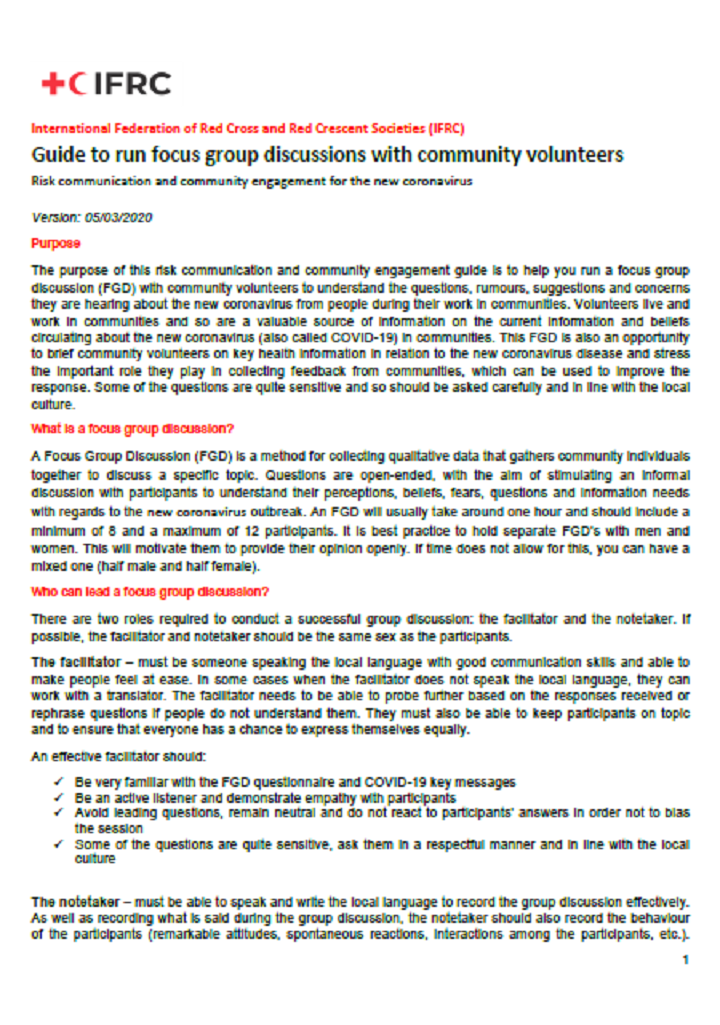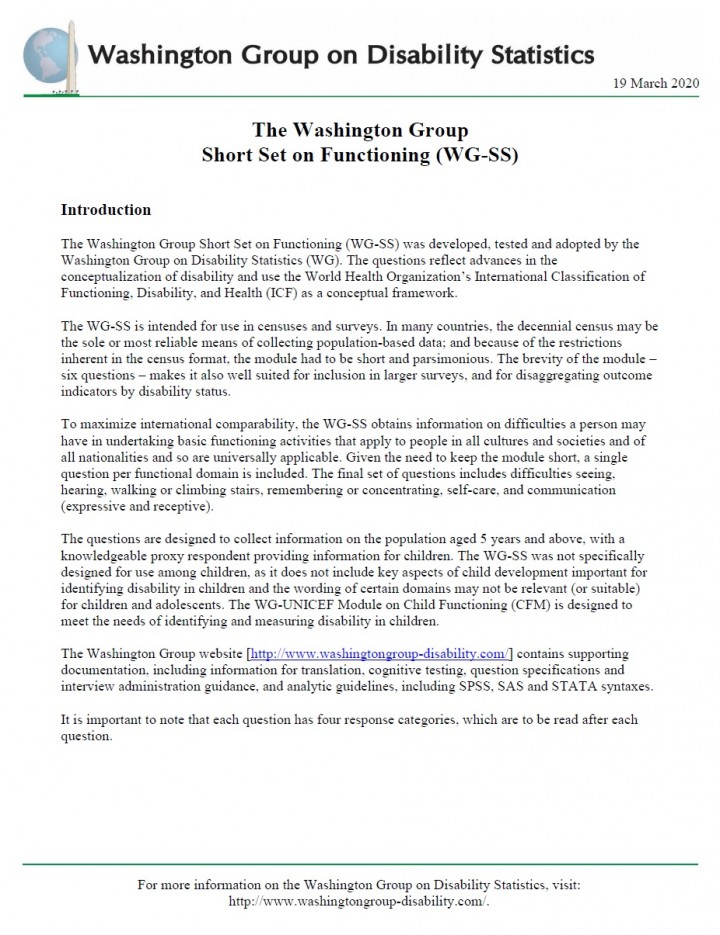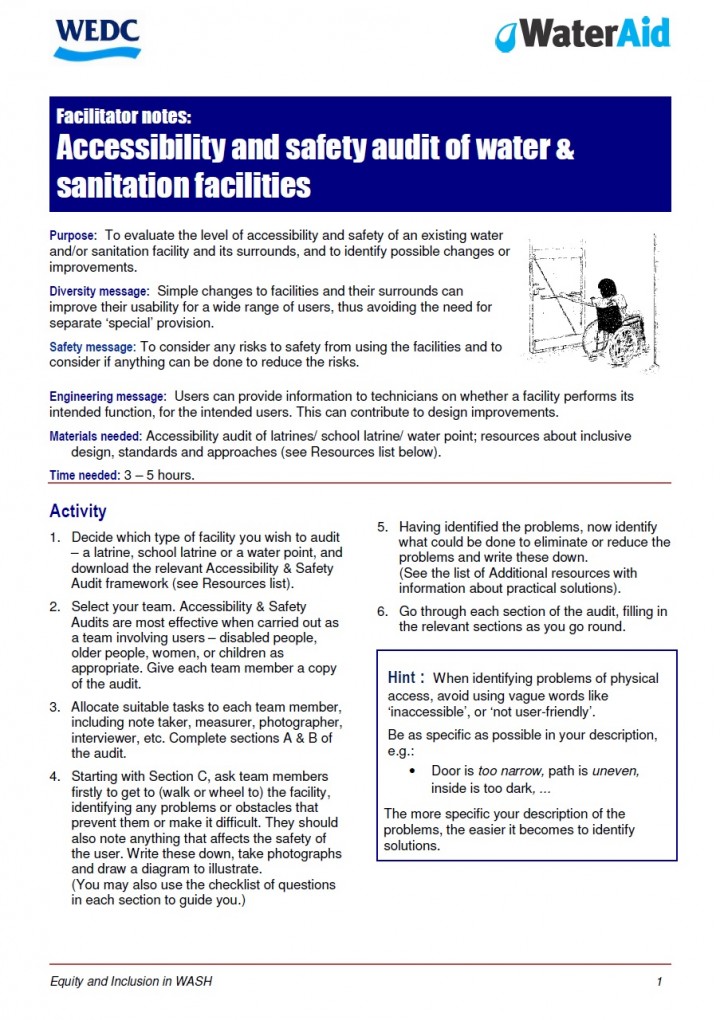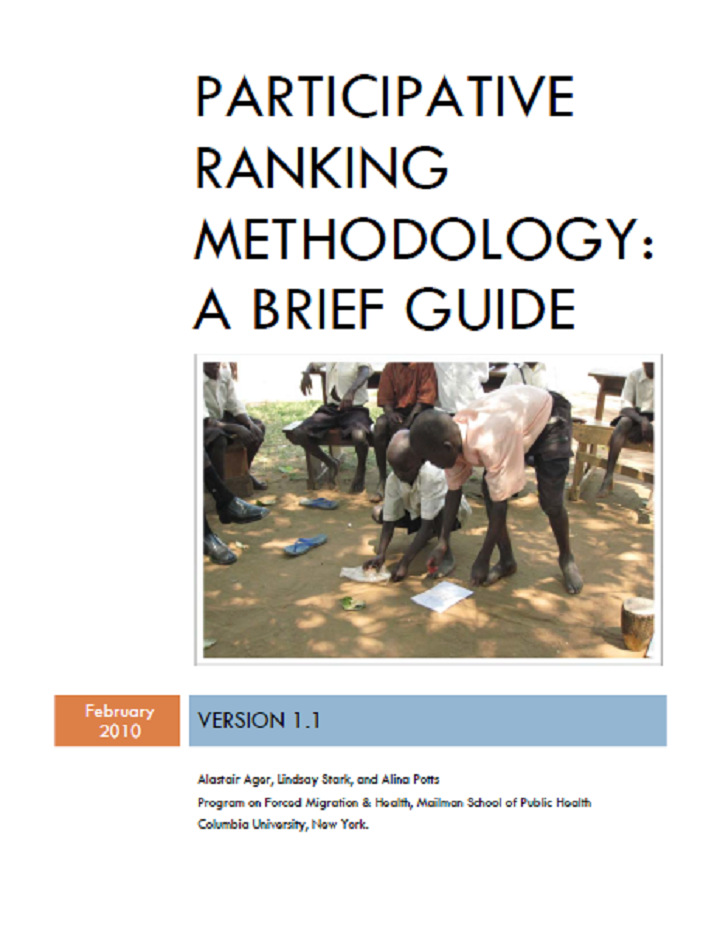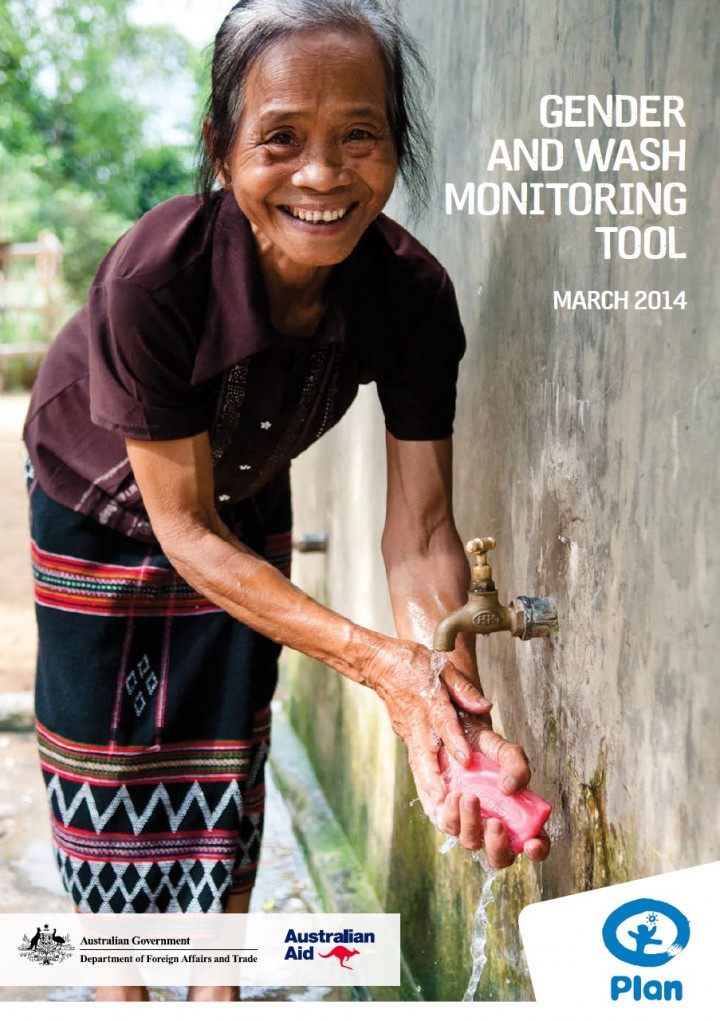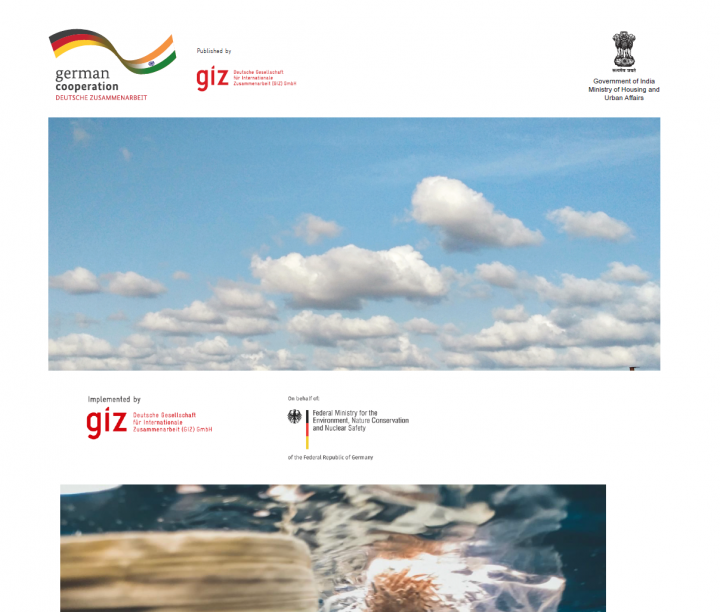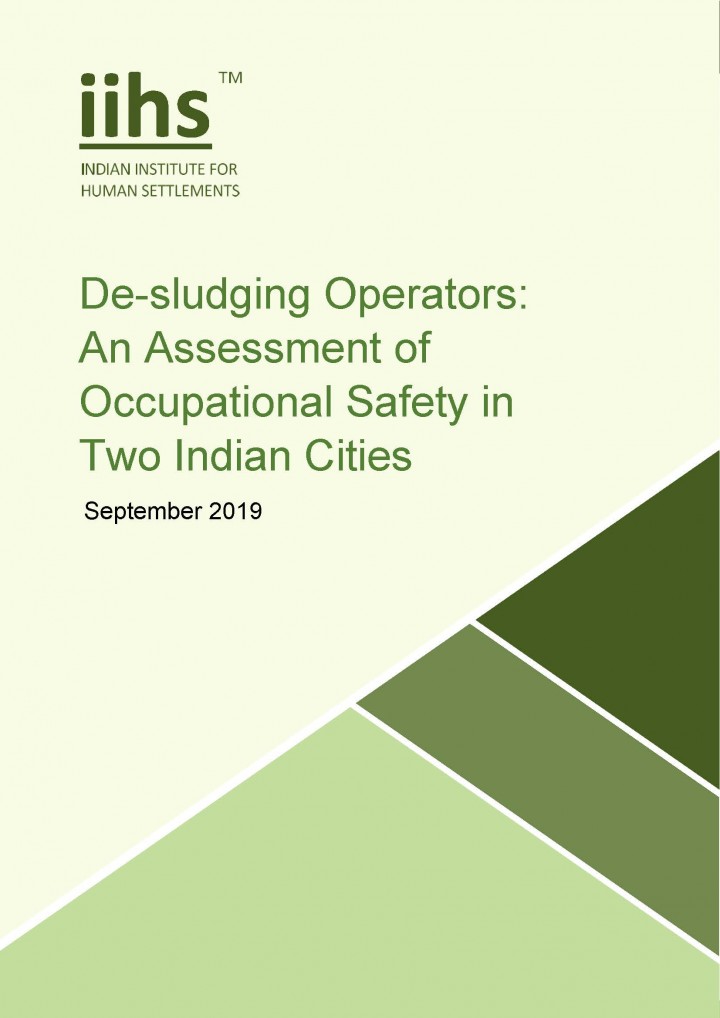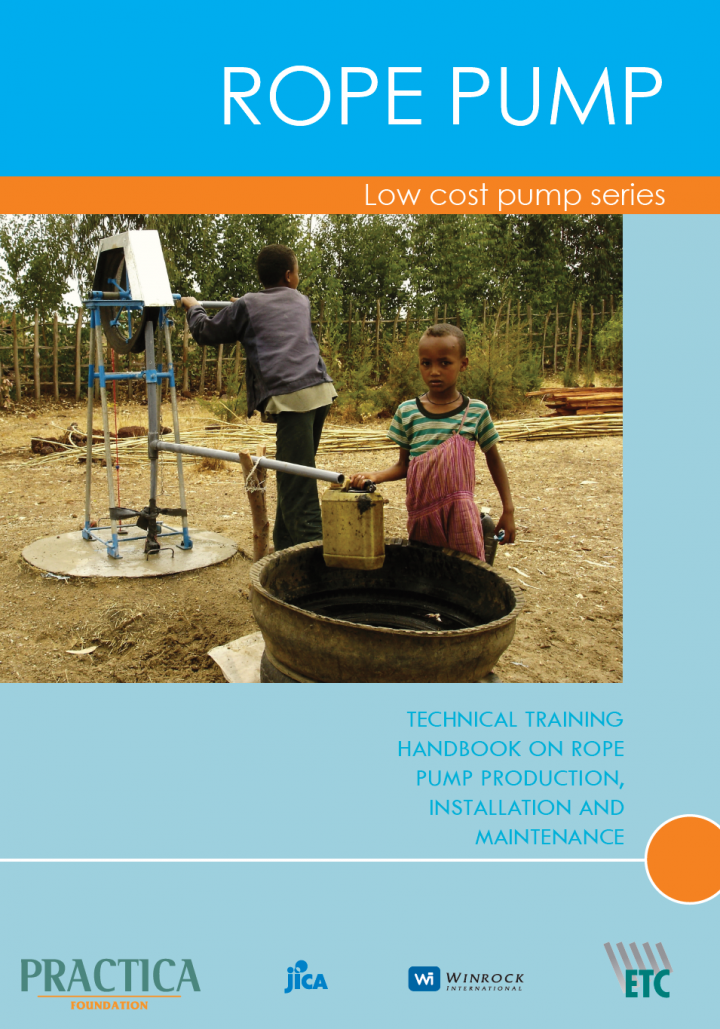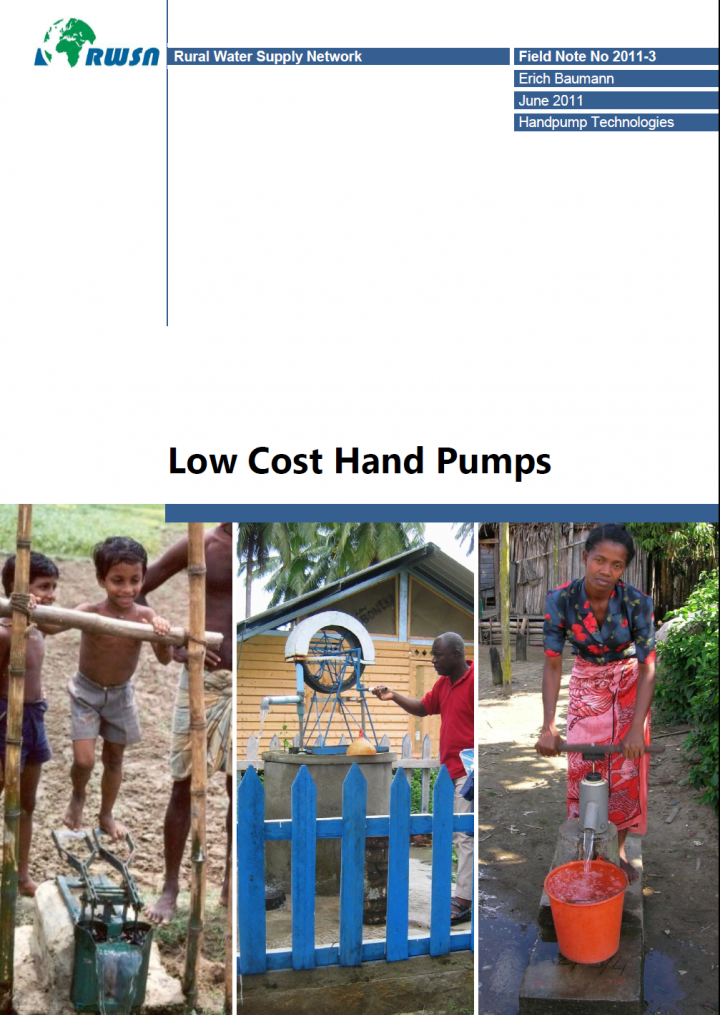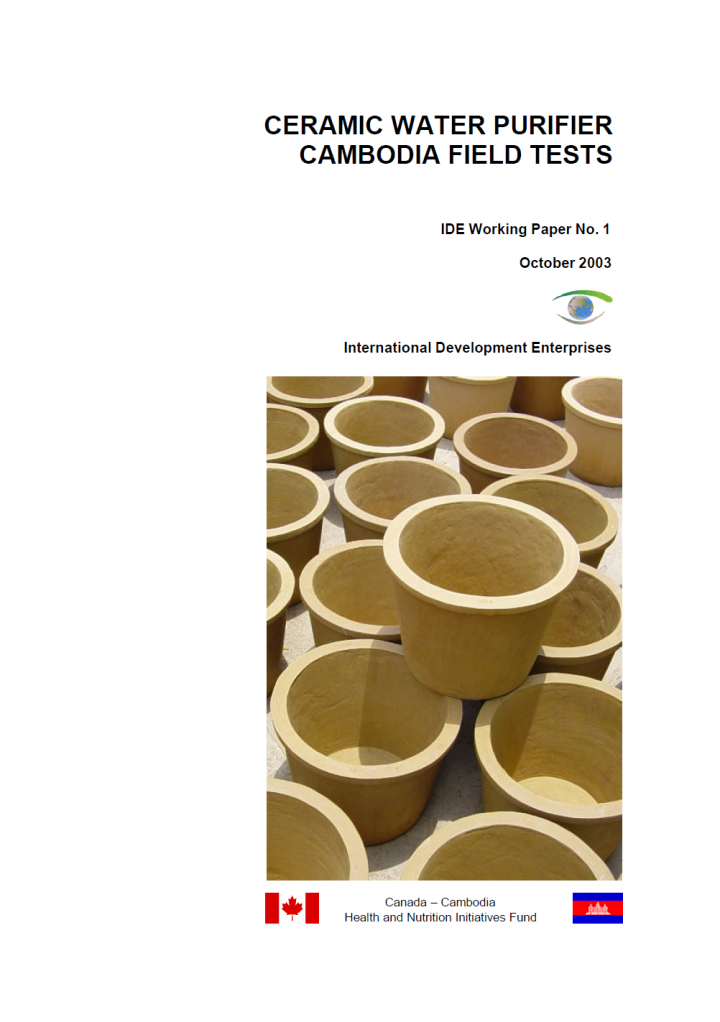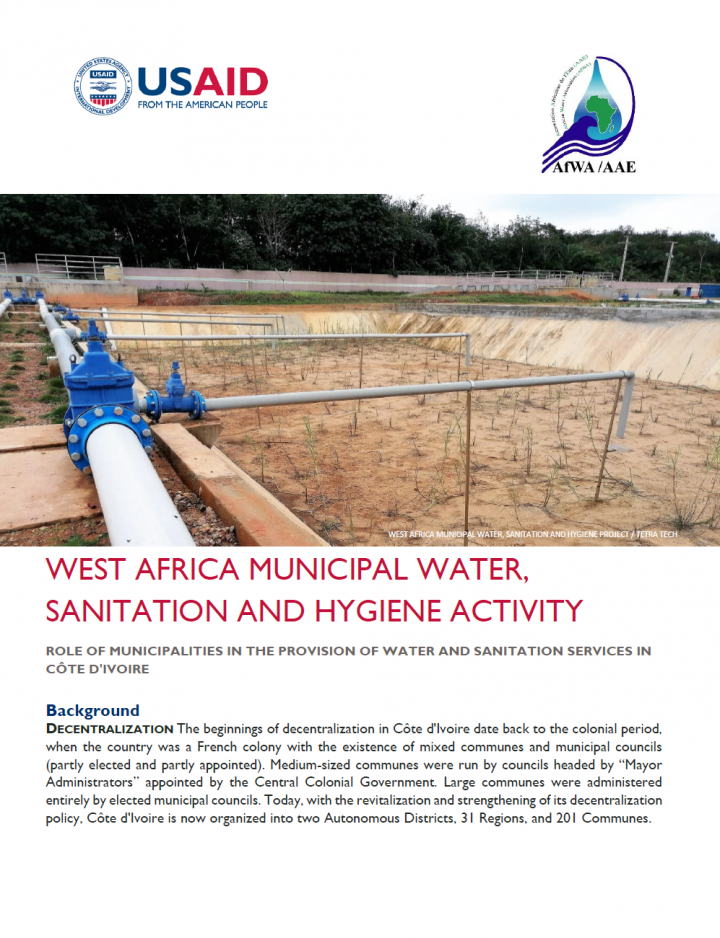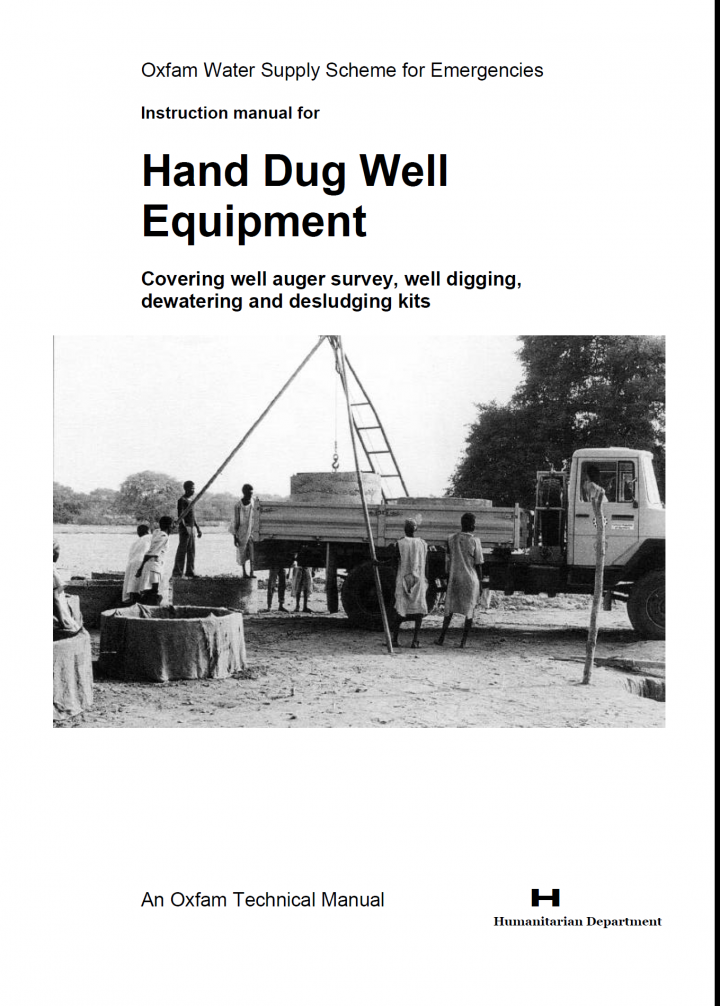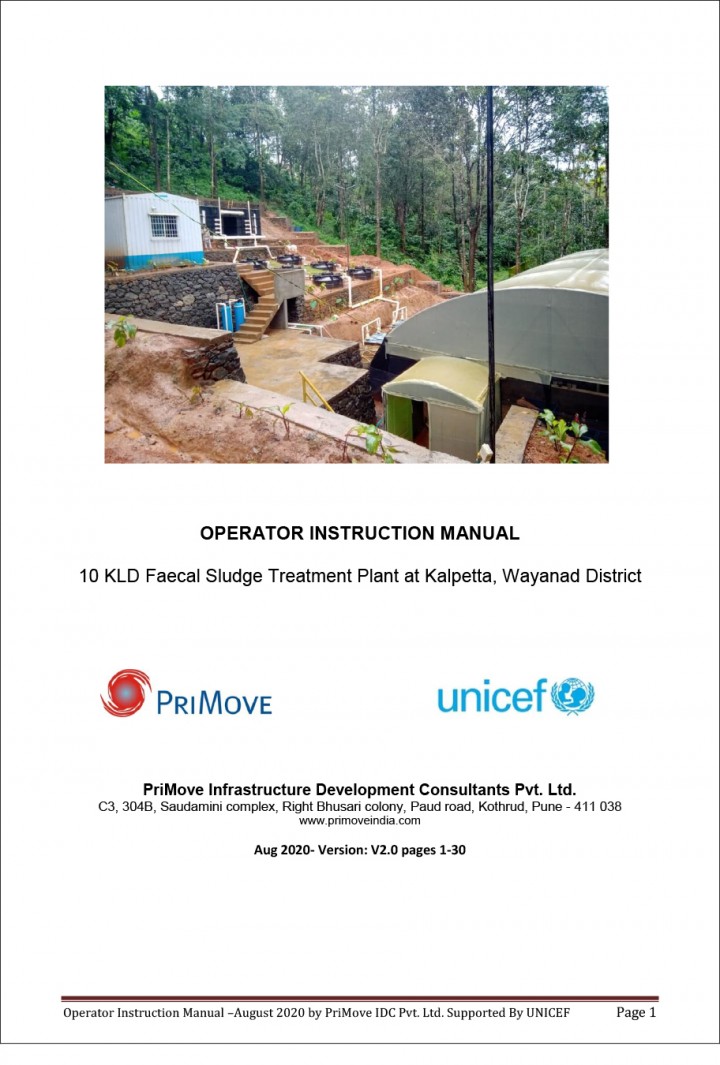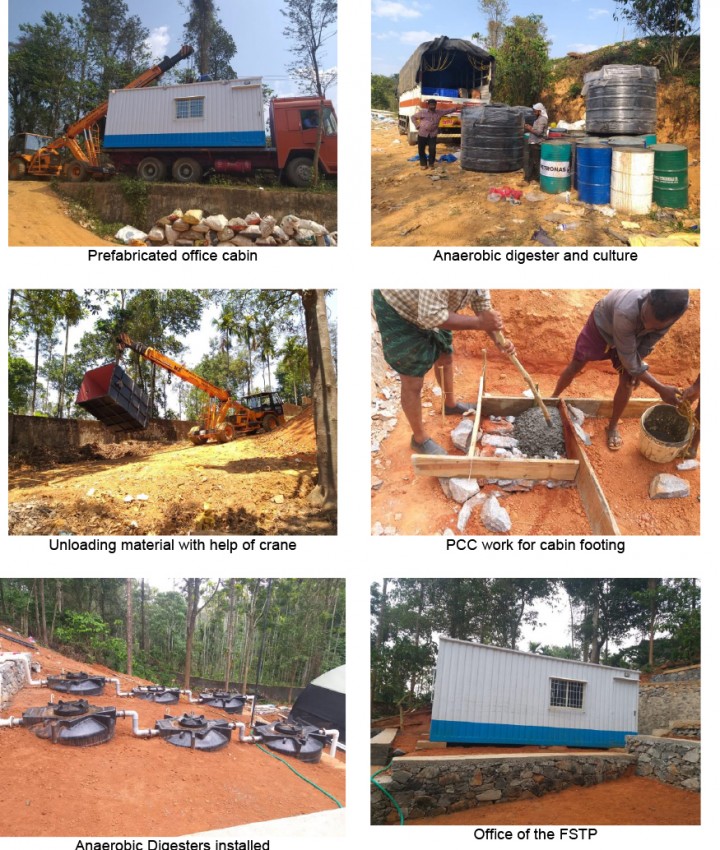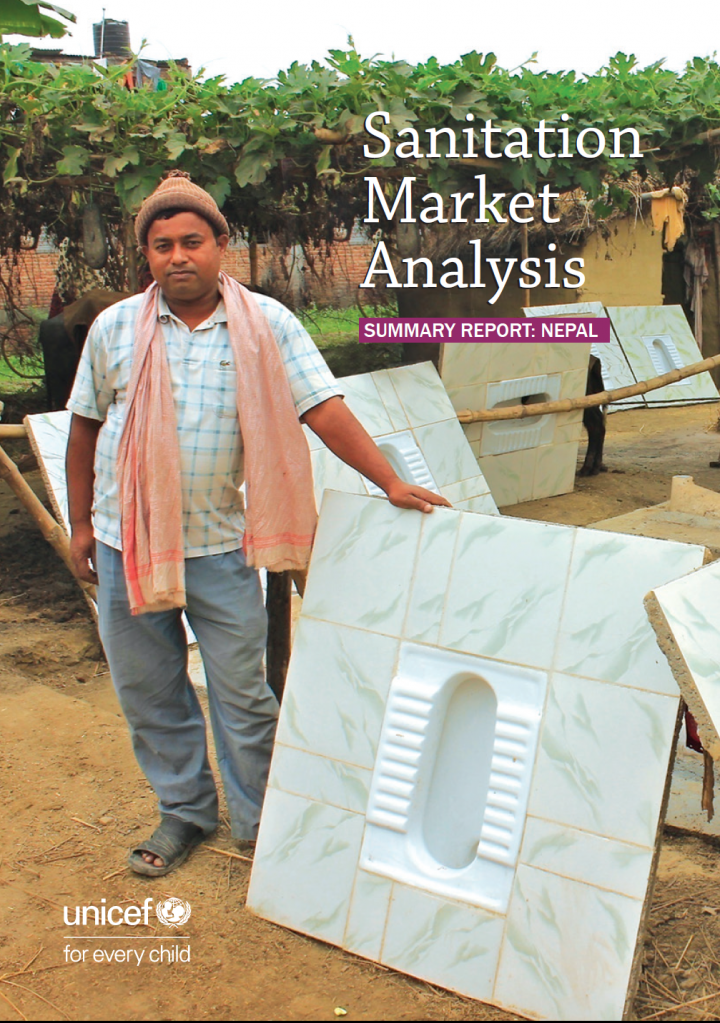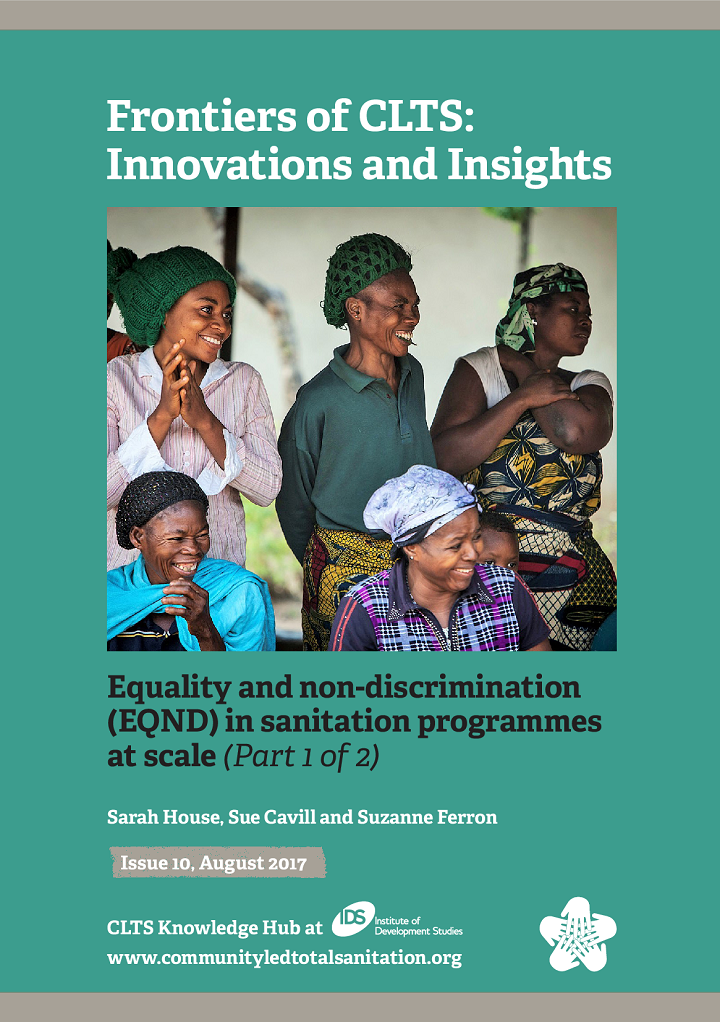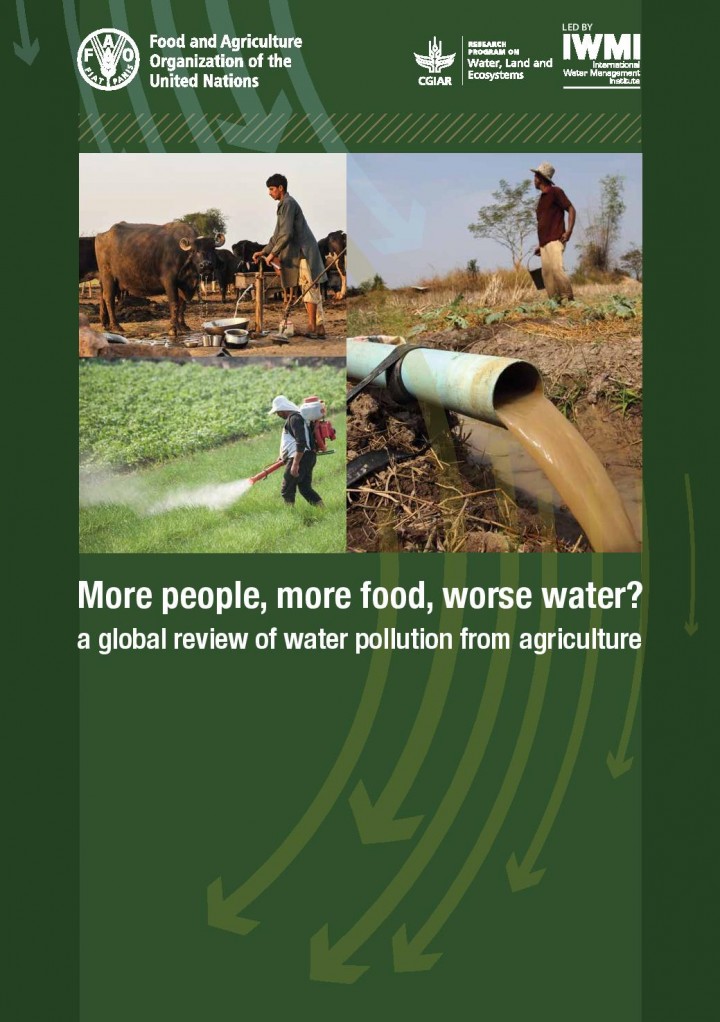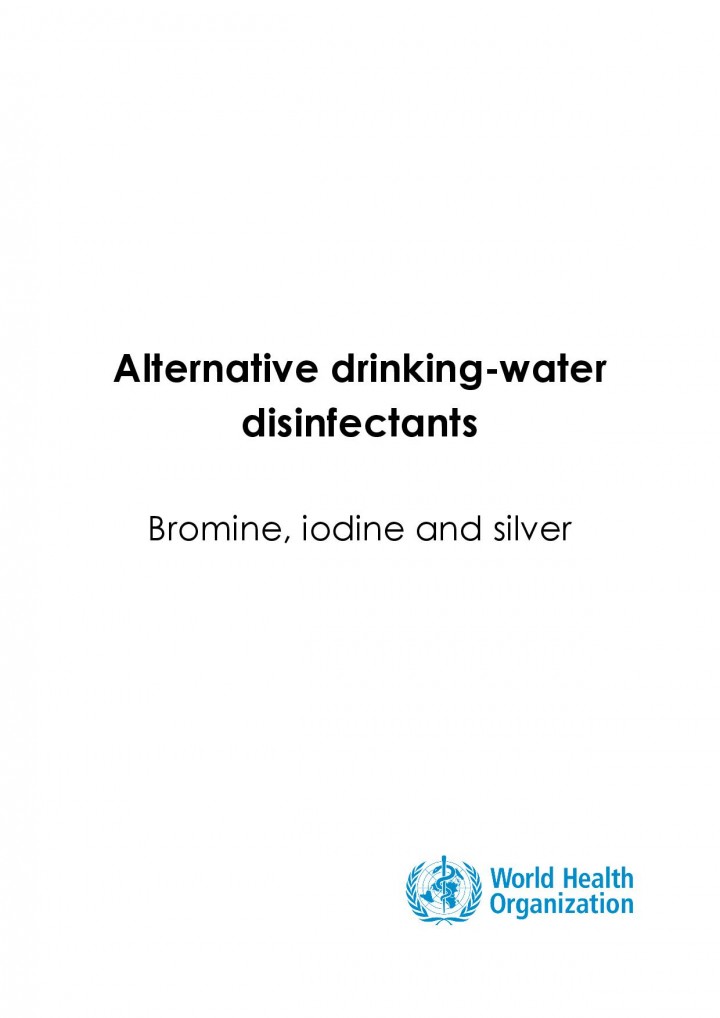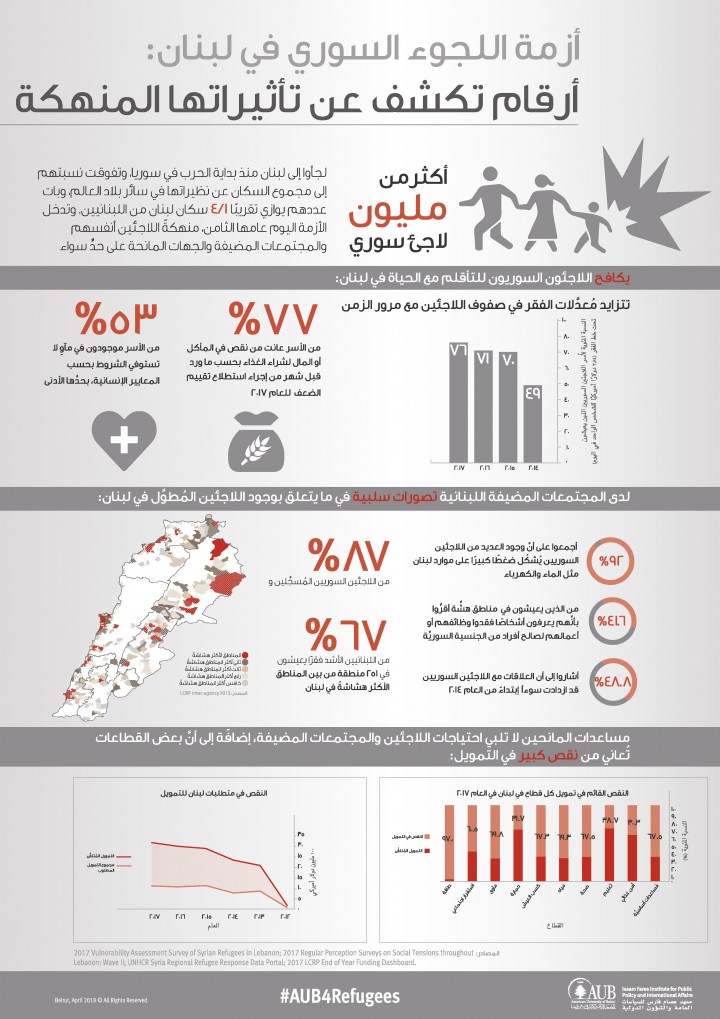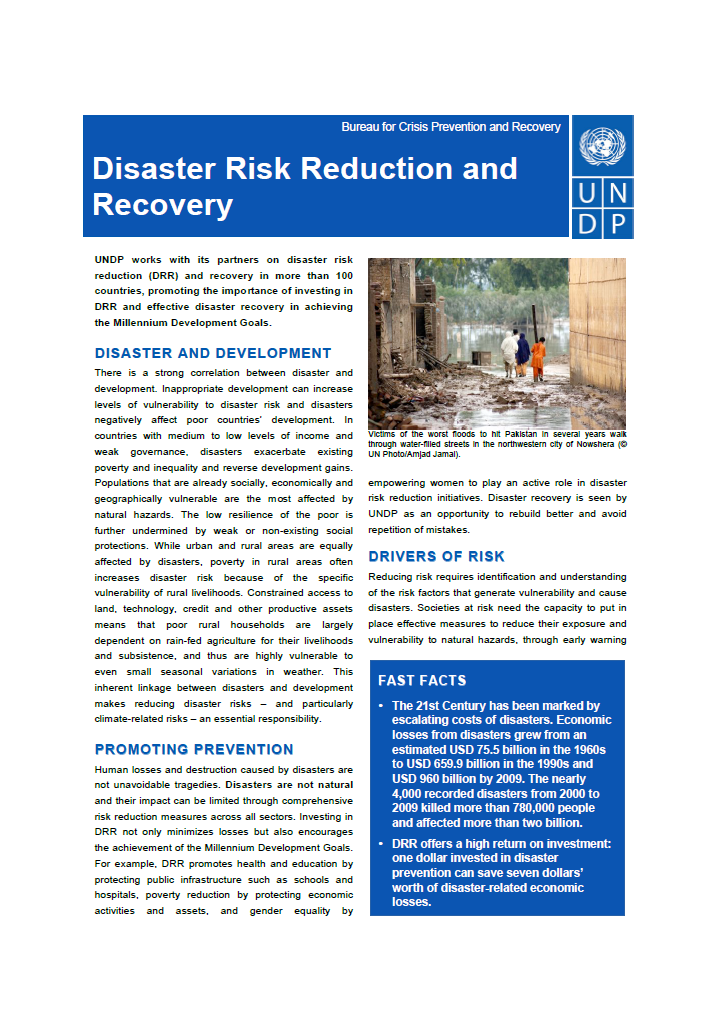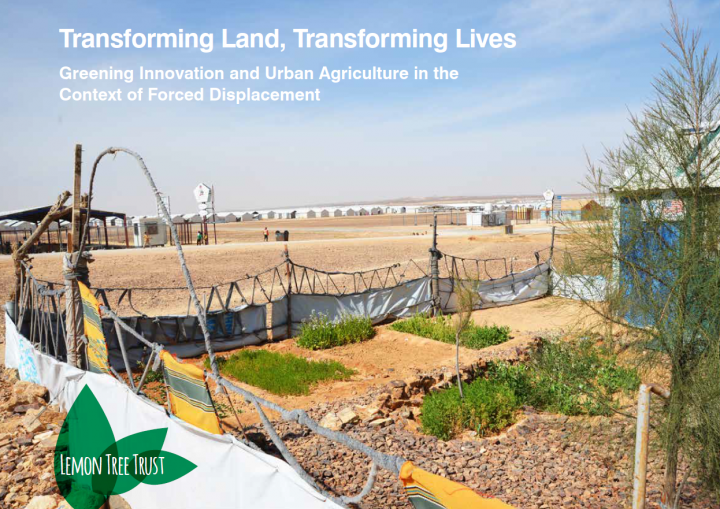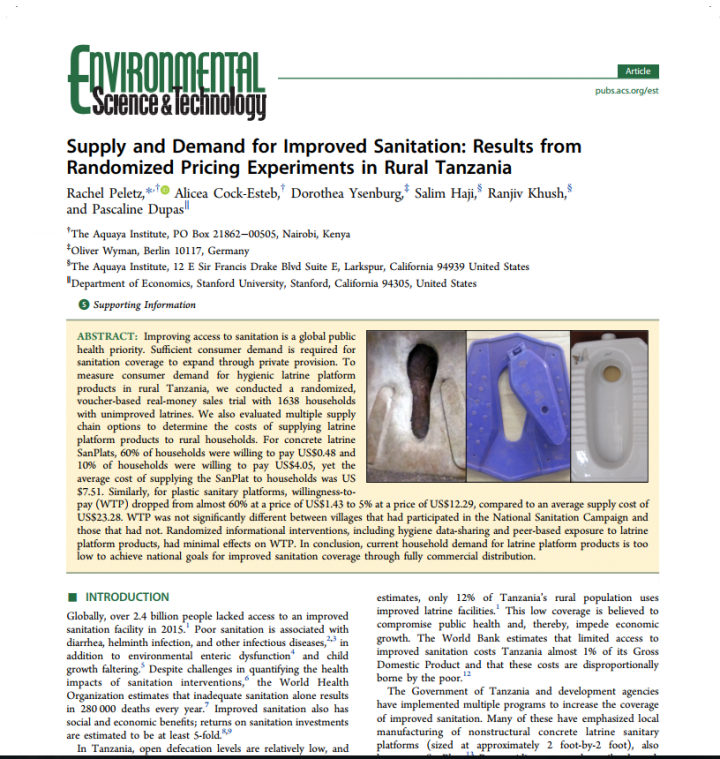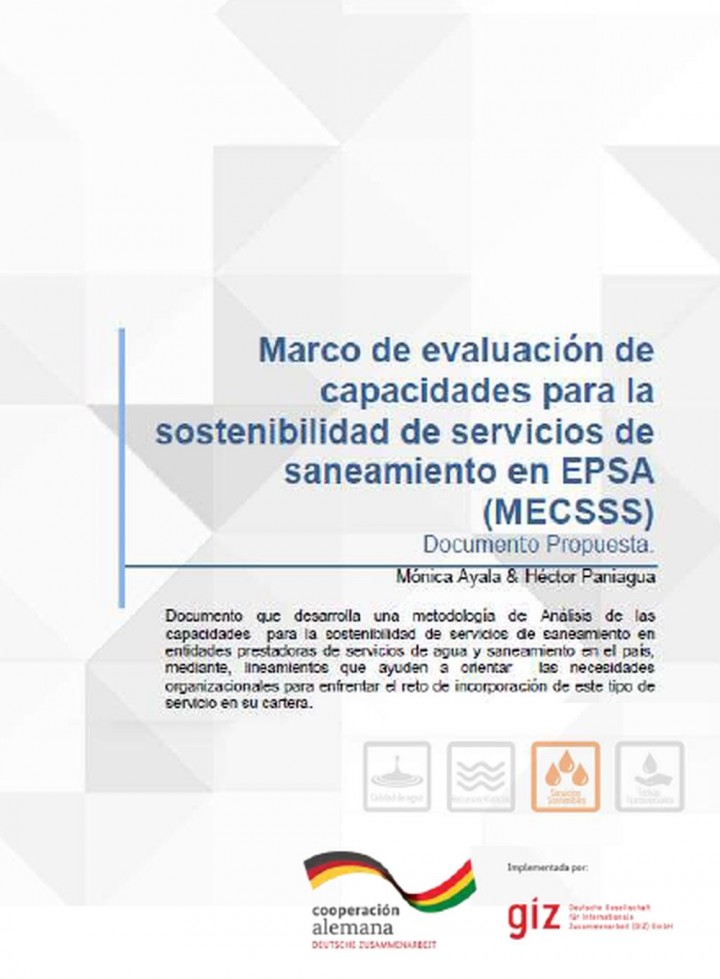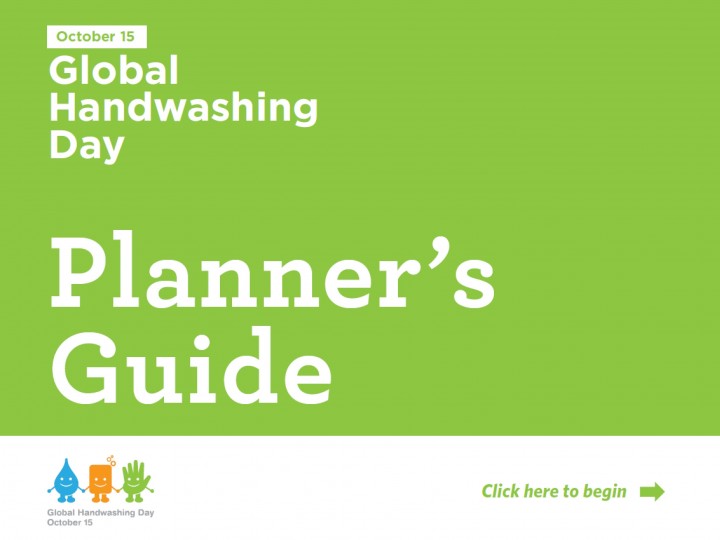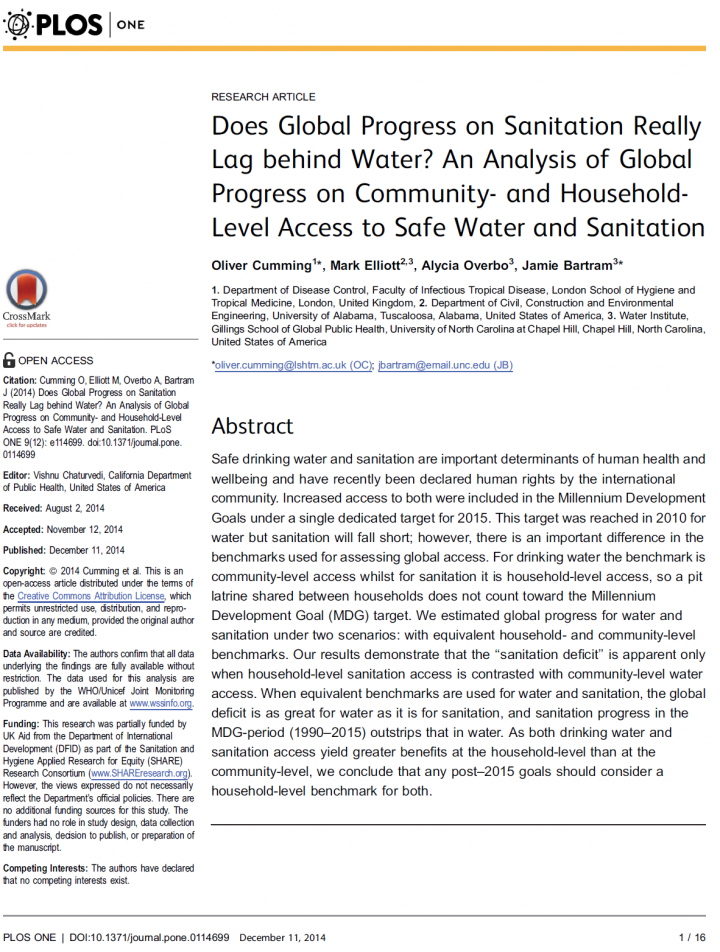Searching for information on Sanitation Workers?
The Sanitation Workers Knowledge + Learning Hub is the best source for all current news, trends, articles and updates on sanitation workers rights around the world.
The purpose of this risk communication and community engagement guide is to help you run a focus group discussion (FGD) with community volunteers to understand the questions, rumours, suggestions and concerns they are hearing about the new coronavirus from people during their work in communities. Volunteers live and work in communities and so are a valuable source of information on the current …
The WG Short Set of six questions on functioning for use on national censuses and surveys was developed, tested and adopted by the Washington Group on Disability Statistics (WG). The questions reflect advances in the conceptualization of disability and use the World Health Organization’s International Classification of Functioning, Disability, and Health (ICF) as a conceptual framework.
In a …
Purpose: To evaluate the level of accessibility and safety of an existing water and/or sanitation facility and its surrounds, and to identify possible changes or improvements.
Diversity message: Simple changes to facilities and their surrounds can improve their usability for a wide range of users, thus avoiding the need for separate ‘special’ provision.
Safety message: To consider any risks …
This document describes the participative ranking methodology, a development of the participatory rapid appraisal ranking method. Participative ranking is a mixed-methods approach to data collection, in which a group of knowledgeable participants are guided in generating responses to a specific question or set of questions. It draws on both quantitative and qualitative methodologies to generate …
Plan International Australia (Plan Australia) would like to share the Gender and WASH Monitoring Tool (GWMT). Promoting gender equality demands significant attention in every WASH intervention as gender relations are integral to the effectiveness and sustainability of WASH. The literature suggests that measuring change in the context of gender relations presents ongoing challenges for monitoring …
Current estimates based on a limited number of modelling studies suggest that globally some 9-10 million tonnes of plastics enter the oceans annually to become marine litter. Moreover, it is estimated that 15-20% of all plastics are entering oceans via riverine ecosystems of which 90% are contributed by 10 of the world’s most polluting rivers only. Two of these rivers are located in India, …
Safe collection, handling and transport of fecal sludge is an integral part of septage management. Limited attention has been paid to the safe collection, transport, disposal and treatment of human excreta from septic tanks. A study was conducted in two cities in India to understand the current desludging practices, the underlying reasons for current occupational practices and hazards, relevance …
Module 1 creates awareness on the technology and applicability of the rope pump as a family water
pump and provides a road-map for implementation. It is meant for NGO’s, governments and implementing organisations considering the implementation of a rope pump production and installation project.
Module 2 describes the installation and maintenance procedures of the rope pump. This module is …
Groundwater supplies provide a significant proportion of rural dwellers in the developing world with access to a safe drinking water supply and will continue to do so in the near future. With the emergence of Self Supply and its increasing acceptance, low-cost handpumps have a role to play. Twenty five years ago the emphasis was on completely enclosed pumps (for drinking water only) to avoid the …
This report summarizes results from a year-long pilot project in Cambodia to test the Ceramic Water Purifier, a low-cost household water treatment technology that removes microbiological contamination at the point of use. The pilot project was conducted by International Development Enterprises (IDE) with financial assistance from the Health and Nutrition Initiatives Fund supported by the Canadian …
DECENTRALIZATION The beginnings of decentralization in Côte d'Ivoire date back to the colonial period, when the country was a French colony with the existence of mixed communes and municipal councils (partly elected and partly appointed). Medium-sized communes were run by councils headed by “Mayor Administrators” appointed by the Central Colonial Government. Large communes were administered …
This equipment is part of several packages devised by the Oxfam Public Health Engineering Team to help provide a reliable water supply for populations affected by conflict or natural disaster. The equipment is designed to be used with any or all of the following Oxfam water equipment: Water Storage equipment, Water Coagulation and Disinfection equipment, Water Filtration equipment, Water …
"This operator instruction manual is the reference document for the operation and maintenance of the equipment and processes that comprise the tiger bio filter (TBF) based
faecal sludge treatment plant (FSTP) at Wayanad, Kerala. This manual will enable the plant operator and helper to run the plant smoothly and assist during site operations and maintenance work."
Wayanad's pilot project on faecal sludge management (FSM) has encouraged risk-informed programming, innovation, in the sanitation sector. A unique waste management system has been commissioned in Wayanad that uses vermifiltration (use of worms) to process waste and turn it into compost and useable greywater.
Nepal has made an impressive progress in eliminating open defecation across the country in the last two decades. As a result, the percentage of households using improved (not shared) sanitation facilities in Nepal increased from 15% in 2000 to 62% in 2017, and open defecation rates fell from 67% to 21% over the same period (WHO & UNICEF, 2019). Nepal celebrated gains made towards ending open …
A well-facilitated Community-Led Total Sanitation (CLTS) programme that pro-actively considers and involves people who might be disadvantaged has been shown to have many benefits. A lack of this can and will often have negative impacts and make programmes and ODF unsustainable. This issue of Frontiers of CLTS looks at who should be considered potentially disadvantaged, how they can effectively …
We need a much better understanding of the causes and effects of agricultural water pollution as well as effective means to prevent and remedy the problem. In the existing literature, information on water pollution from agriculture is highly dispersed. This repost is a comprehensive review and covers different agricultural sectors (including crops, livestock and aquaculture), and examines the …
Disinfection of water has greatly contributed to reducing risks to public health from microbiologically contaminated drinking water.
Numerous disinfection techniques have been developed over the centuries that are used in a wide range of applications, ranging from large and small public drinking-water plants to point-of-entry and point-of-use (POU) treatment devices.1 Although chlorine has been …
Greening innovation and urban agriculture can bring dignity, empowerment and food sovereignty to refugee communities. Simple technologies and waste recovery make these techniques cost effective and adaptable. Both should be central to designing, implementing and sustaining both refugee camps and overcrowded urban areas. This report examines current and potential use of greening innovation and …
Improving access to sanitation is a global public health priority. Sufficient consumer demand is required for sanitation coverage to expand through private provision. To measure consumer demand for hygienic latrine platform products in rural Tanzania, we conducted a randomized, voucher-based real-money sales trial with 1638 households with unimproved latrines. We also evaluated multiple supply …
Documento que desarolla una metodología de análisis de las capacidades para la sostenibilidad de servicios de agua y saneamiento en entidades prestadoras de servicios de agua y saneamiento en el país, mediante, lineamientos que ayuden a orientar las necesidades organizacionales para enfrentar el reto de incorporación de este tipo en su cartera.
I. ANTECEDENTES
II. OBJETIVO
III. ENFOQUE …

